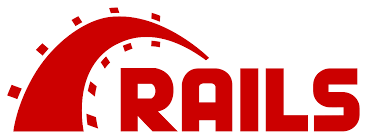
Ruby on Rails, often simply called Rails, is a popular open-source web application framework written in the ruby rails development programming language. It is designed to make the development of web applications easier by making assumptions about what developers need and providing them with a structure for building those applications.
Rails is known for its “convention over configuration” philosophy, which means that it favours sensible defaults over the need for extensive configuration. This allows developers to get up and run quickly and focus on writing the unique parts of their application rather than on the tedious aspects of configuration.
Why Ruby on Rails for your start-up?
- Productivity
One of the biggest advantages of using Rails is the productivity it offers. Rails follow the convention over the configuration principle, meaning that developers do not have to spend much time on basic configurations.
Rails also provide a lot of built-in functionality that developers would otherwise have to build themselves. This means that developers can focus on building the unique aspects of their application rather than on the tedious aspects of configuration.
- Rapid Development
Rails is designed to help developers build web applications quickly and efficiently. This is achieved through “scaffolding,” a set of code templates that can be used to create the basic structure of an application.
Scaffolding can be used to create models, controllers, and views and to set up the basic routing for an application. This can save a significant amount of time for developers and allows them to focus on the unique aspects of their application.
- Large Community
Rails have a large and active community of developers who contribute to the framework and provide support to each other. This community has built a large number of open-source libraries, known as “gems,” which can be easily integrated into a Rails application. These gems provide additional functionality and can save developers significant time.
- Flexibility
Rails is a highly flexible framework that can be used to build a wide range of web applications. It can be used to create everything from simple, single-page applications to complex, enterprise-level applications. Rails can also be used to build both traditional web applications and modern, single-page applications.
- Scalability
Rails is a highly scalable framework that can handle many users and a high traffic volume. Rails applications can be easily scaled by adding more hardware and by using load-balancing techniques. Rails also have built-in support for caching, which can help improve an application’s performance.
- Testability
Rails have built-in testing support, making it easy to write automated tests for an application. Rails also have a number of testing frameworks and libraries available, such as RSpec and Cucumber, which can be used to write and run tests. This means that developers can ensure that their application is working correctly and that any changes they make will not break existing functionality.
Ruby on Rails is a highly scalable framework that can handle many users and a high traffic volume. One of the ways Rails achieves scalability is through its use of the Model-View-Controller (MVC) architectural pattern.
This pattern separates the application into three distinct components: the model, which represents the data and business logic; the view, which represents the user interface; and the controller, which handles the data flow between the model and the view. This separation of concerns makes it easy to scale the application by adding more resources to the different components.
In conclusion, Ruby on Rails is a powerful and productive web application framework that is well-suited to start-ups. Its convention over configuration philosophy, rapid development capabilities, large and active community, flexibility, scalability, and built-in support for testing make it an ideal choice for building web applications.
With the popularity of Ruby on Rails continuing to grow, it is likely to remain a popular choice for start-ups for the foreseeable future. Please feel free to share your thoughts regarding the discussion below in the comment section.

